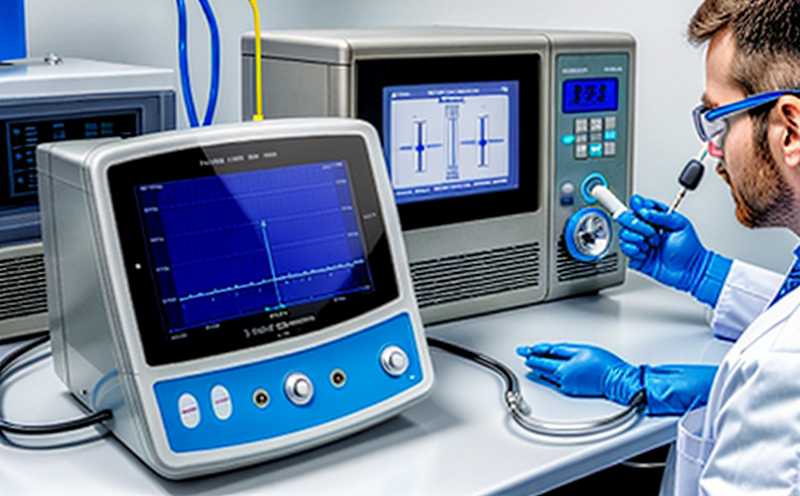Testing medical devices for resistance to internal and external pressures
Testing Medical Devices for Resistance to Internal and External Pressures A Critical Laboratory Service Provided by Eurolab
In todays fast-paced medical device industry, ensuring the safety and efficacy of your products is crucial for regulatory compliance, patient well-being, and business success. One critical aspect of medical device testing is evaluating resistance to internal and external pressures. This laboratory service is essential for manufacturers who want to guarantee their devices can withstand various environmental conditions, stresses, and loads without compromising performance or durability.
Eurolab offers a comprehensive Testing medical devices for resistance to internal and external pressures laboratory service that helps businesses validate the robustness of their products. Our expert team conducts rigorous testing protocols to assess a devices ability to resist various types of pressure, including hydrostatic, pneumatic, and vacuum pressures. By partnering with Eurolab, you can ensure your medical devices meet the highest standards of quality and safety.
What is Testing Medical Devices for Resistance to Internal and External Pressures?
Testing medical devices for resistance to internal and external pressures involves subjecting products to various types of pressure to evaluate their ability to withstand different environmental conditions. This includes
Hydrostatic Pressure Simulating water or other fluids pressure on the device, mimicking the effects of immersion or submersion.
Pneumatic Pressure Applying compressed air or gas pressure to test a devices resistance to compression and expansion.
Vacuum Pressure Subjecting devices to negative pressure conditions, simulating exposure to low atmospheric pressures.
Advantages of Using Testing Medical Devices for Resistance to Internal and External Pressures
Partnering with Eurolab for Testing medical devices for resistance to internal and external pressures provides numerous benefits
Enhanced Patient Safety By ensuring your products can withstand various environmental conditions, you reduce the risk of device failure or malfunction, which may lead to patient harm.
Regulatory Compliance Our testing services help you meet international standards and regulations, such as ISO 80369-1, IEC 60601-2-13, and FDA requirements.
Increased Reliability By evaluating your devices resistance to internal and external pressures, we can identify potential weaknesses or design flaws, enabling improvements for future products.
Reduced Liability Demonstrating compliance with regulatory standards and industry best practices reduces the risk of product-related liability claims.
Improved Product Durability Our testing protocols help you optimize device design and materials, leading to increased lifespan and reduced maintenance needs.
Key Benefits of Eurolabs Testing Medical Devices for Resistance to Internal and External Pressures Service
Here are some key advantages of choosing Eurolab as your testing partner
Accurate Results Our experienced team conducts rigorous testing protocols using state-of-the-art equipment, providing accurate results and reliable data.
Comprehensive Reporting We provide detailed reports outlining test procedures, results, and recommendations for improvement.
Customized Solutions Our team works with you to tailor testing protocols to meet your specific product requirements and industry standards.
Cost-Effective Partnering with Eurolab can help reduce costs associated with device failures or rework due to non-compliance.
QA Section Frequently Asked Questions
Q What types of medical devices require Testing for resistance to internal and external pressures?
A Our testing service is suitable for a wide range of medical devices, including surgical instruments, implantable devices, wound care products, and respiratory therapy equipment.
Q How do I prepare my product for testing?
A Provide us with a sufficient quantity of your device, along with any relevant documentation or design specifications. Our team will guide you through the preparation process to ensure smooth testing.
Q What types of pressure can be simulated during testing?
A We can simulate hydrostatic, pneumatic, and vacuum pressures, as well as other environmental conditions such as temperature and humidity.
Q How long does the testing process typically take?
A The duration of testing varies depending on the device type and complexity. Our team will work with you to develop a customized testing plan that meets your project timeline and requirements.
Conclusion
In todays highly competitive medical device industry, it is essential for manufacturers to ensure their products meet rigorous standards of quality and safety. Testing medical devices for resistance to internal and external pressures is a critical aspect of device validation that Eurolab specializes in. Our comprehensive laboratory service provides businesses with the confidence to deliver reliable, durable, and compliant products.
Partnering with Eurolab not only ensures regulatory compliance but also enhances patient safety, reduces liability risks, and improves product durability. With our expertise and state-of-the-art testing equipment, you can optimize your device design and materials, reducing costs associated with rework or failures due to non-compliance.
Get in touch with Eurolab today to discuss your Testing medical devices for resistance to internal and external pressures needs and discover how we can help you take your product development to the next level.




